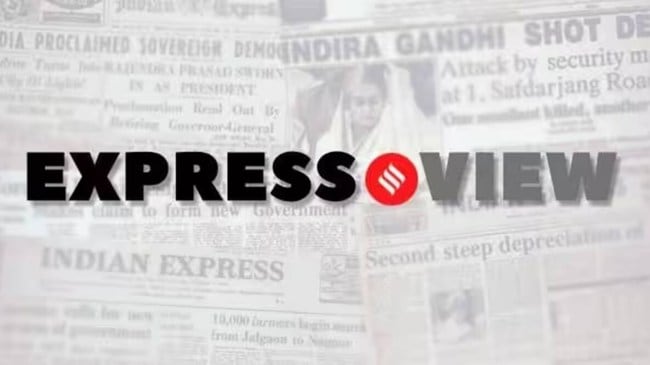Opinion In Bihar, Election Commission once deepened democracy. Its current ‘revision’ does the opposite
The EC must immediately shift the exercise of revision of electoral rolls to a later time, after this election is done, and allow space for feedback, public awareness campaigns, consultation with all parties. At stake is the people’s trust, and its institutional credibility
 The EC must immediately shift the exercise of revision of electoral rolls to a later time, after this election is done, and allow space for feedback, public awareness campaigns, consultation with all parties.
The EC must immediately shift the exercise of revision of electoral rolls to a later time, after this election is done, and allow space for feedback, public awareness campaigns, consultation with all parties. The Election Commission of India needs to pause and ask itself an urgent question: Why is the exercise it has initiated in Bihar changing the subject in the poll-bound state — from the excitements of who the people will vote for, to anxieties about whether or not all voters will be allowed to cast their vote, which is their fundamental right? On paper, the Special Intensive Revision (SIR) of electoral rolls that the EC has launched since June 28, seems unexceptionable. After all, Article 324 of the Constitution empowers the EC to oversee elections and Article 326 directs that the franchise be limited to adult Indian citizens. The updating of electoral rolls is supported by the Registration of Electors Rules 1960 and Representation of the People Act 1950. The last SIR was done in 2003 and there have been annual summary revisions in several states since. The EC has cited the reasons why — migration, need to weed out names of foreign illegal immigrants, to include newly eligible voters, delete names of the dead. And yet, the ongoing exercise takes place in circumstances that have stoked widespread insecurities.
For one, it has been announced barely four months before an election, which makes the timelines enormously challenging administratively, and in fact impossible to meet — almost 3 crore voters in nearly 30 days, with only about 3 per cent of the forms uploaded on the EC website till end of last week — in a state which is flood prone, has a high migration rate, and where large sections do not have either the awareness or the wherewithal. Additional documentation has been asked from those whose names are not recorded in the 2003 electoral rolls — they need to submit at least one of 11 documents to establish their eligibility —shifting the burden of proof to the voter. As an ongoing series of ground reports in this newspaper reveals, this has triggered a scramble for documents that many voters don’t have, and don’t know how to procure, and raised fears of an “NRC through the backdoor”. It has created conditions where vulnerable sections, including the poor, migrant labourers, SCs, STs, Muslims, elderly and women face the imminent spectre of disenfranchisement. The EC’s latest advertisement, which has been read by some as saying that enumeration forms can be submitted first and documents later, has only added to the uncertainty. Against this backdrop, the EC must lose no time in going back to the drawing board.
It must look again at some of the available data on Bihar — where in 2007, the year those who have become eligible to vote in this election were born, only one-fourth of the estimated births were registered; where according to 2022 estimates, only 14.71 per cent graduated from class 10; where total number of valid passports issued till 2023 was barely 2 per cent. The EC must also remind itself of its own stellar record: Bihar was among the states that benefited most from the electoral reforms that the Commission initiated in the 1990s and built upon subsequently. In this state of backwardness and inequalities, the rigorous supervision of free and fair polls — moving the polling booth to Dalit neighbourhoods, for example —has meant a heartening deepening of democracy. The EC must immediately shift the exercise of revision of electoral rolls to a later time, after this election is done, and allow space for feedback, public awareness campaigns, consultation with all parties. At stake is the people’s trust, and its institutional credibility. At stake, most of all, is the sanctity of every citizen’s constitutionally guaranteed fundamental right to vote. For, on refreshed poll lists, Bihar will show the way for the nation.




